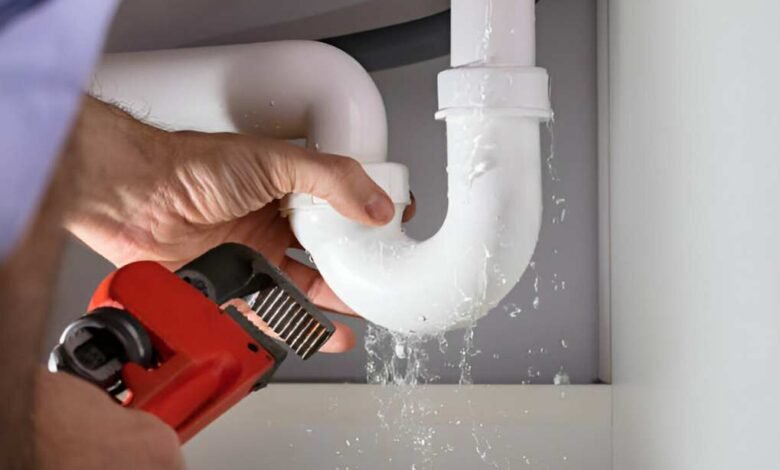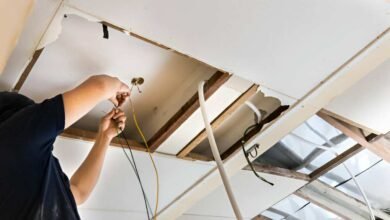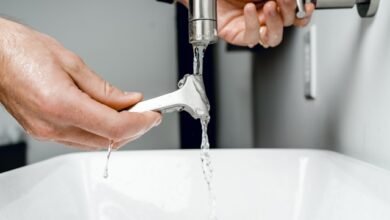Smart Strategies to Minimize Water Use and Detect Leaks Efficiently

The Urgency of Water Conservation
The problem of water scarcity is a growing global concern that demands urgent action and improved strategies for water use. Conservation is essential for maintaining the equilibrium of ecosystems and the variety of life since overuse can lead to the degradation of habitats. Implementing water-saving practices can lead to lower utility bills and long-term financial relief, especially as the costs of water provision continue to rise. Global initiatives are focused on raising public awareness and promoting collective action for sustainable water management. They stress the importance of our collective duty to save water and showcase the benefits of collaborating to protect this essential resource for future generations.
Recognizing Early Signs of Leaks
Even though they are frequently concealed, water leaks can pose significant risks if not dealt with swiftly. They can result in the loss of thousands of gallons of water each year, resulting in unwarranted costs and possible damage to the integrity of homes. Common signs of leaks include significant, unexplained spikes in your water bill, persistent damp patches on walls or floors, and the constant, albeit faint, sound of dripping in the absence of an open faucet. Identifying these early indicators is essential for stopping small challenges from developing into more complicated and expensive issues. By prioritizing timely leaking pipe repair Gaithersburg, homeowners can not only avert further structural damage but also contribute to water conservation efforts, embodying responsible resource stewardship. Taking action early also helps ensure that homes remain safe, efficient, and sustainable in the long term.
Tools and Technologies for Leak Detection
Modern technology has revolutionized our approach to achieving water efficiency, offering innovative solutions catering to home maintenance’s dynamic demands. Smart water meters and sensors have become integral in residential settings, providing accurate, real-time monitoring that informs homeowners of irregular water use patterns or potential leaks with remarkable precision. These advanced devices seamlessly integrate with digital platforms, allowing for the convenient oversight and control of residential water consumption through smartphones and other smart devices. The proactive insights they offer facilitate instantaneous corrective measures and contribute to substantial long-term savings.
Simple Household Changes to Save Water
Homeowners can implement several simple yet effective changes to reduce water usage significantly. One practical step is to immediately shorten shower times and address any excess water use. Addressing and fixing leaky faucets and toilets without delay is another effective method to prevent water waste. Investing in water-efficient appliances, like dishwashers or washing machines with the Energy Star label, and opting for low-flow plumbing fixtures, such as faucet aerators, can dramatically reduce household water consumption. These minor, incremental alterations collectively lead to substantial environmental impact and financial savings over time, highlighting the effectiveness of conscientious living and the actionable power of individual choices in promoting water conservation.
Policy and Community Efforts in Water Conservation
The significance of community and policy efforts in advancing water conservation cannot be overstated, as these collective measures drive substantial, positive change. Local governments often spearhead initiatives by offering incentives such as tax rebates or subsidies for installing water-efficient appliances, encouraging individuals to adopt eco-friendly habits. Community-based campaigns, usually organized by local authorities or environmental advocacy groups, aim to engage citizens through awareness-raising activities and interactive conservation projects. These collaborative initiatives emphasize the communal responsibility we share in achieving sustainable water resource management, inspiring individuals to adopt practices that promote water conservation. Through educational workshops, informative seminars, or public demonstrations, these endeavors collectively showcase the profound impact of policy and community-driven efforts in fostering a more conscious and resource-efficient society.
Educating the Next Generation
Instilling the principles of water conservation in the next generation is pivotal in ensuring the continued sustainability of water resources. Educating children about the importance of responsible water use raises awareness and empowers them to take action within their communities. Interactive educational programs, such as those incorporating project-based learning with tangible, real-world applications, engage students and make complex topics more relatable. Projects that challenge students to devise water-saving solutions or participate in community service efforts focused on conservation can ignite a passion for environmental stewardship. Through these informative experiences, children develop a deeper understanding of their role in preserving resources, positioning them as proactive advocates for sustainability and strengthening the movement toward responsible environmental practices for future generations.
Encouraging Routine Maintenance Checks
Routine maintenance checks are critical to effective water management, offering homeowners peace of mind and financial safeguards against potential issues. Consistently checking plumbing systems, such as pipes, faucets, and fixtures, allows for the detection of weaknesses or early issues that, if ignored, could result in major repair needs. Setting up and following a regular maintenance plan allows homeowners to tackle small issues proactively, thereby maintaining the reliability and effectiveness of their water systems. By integrating routine checks into their annual home maintenance plans, homeowners can reduce the risk of unexpected repair costs and contribute to overall water conservation efforts, ensuring their dwellings remain efficient and secure environments for years.




